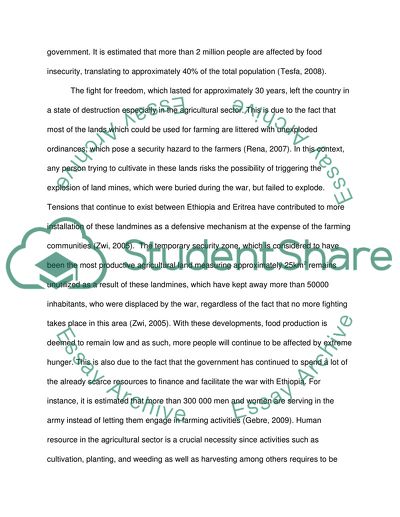Cite this document
(Food Issue in Eritrea Essay Example | Topics and Well Written Essays - 1750 words, n.d.)
Food Issue in Eritrea Essay Example | Topics and Well Written Essays - 1750 words. Retrieved from https://studentshare.org/agriculture/1575843-food-security-in-eritrea
Food Issue in Eritrea Essay Example | Topics and Well Written Essays - 1750 words. Retrieved from https://studentshare.org/agriculture/1575843-food-security-in-eritrea
(Food Issue in Eritrea Essay Example | Topics and Well Written Essays - 1750 Words)
Food Issue in Eritrea Essay Example | Topics and Well Written Essays - 1750 Words. https://studentshare.org/agriculture/1575843-food-security-in-eritrea.
Food Issue in Eritrea Essay Example | Topics and Well Written Essays - 1750 Words. https://studentshare.org/agriculture/1575843-food-security-in-eritrea.
“Food Issue in Eritrea Essay Example | Topics and Well Written Essays - 1750 Words”, n.d. https://studentshare.org/agriculture/1575843-food-security-in-eritrea.


